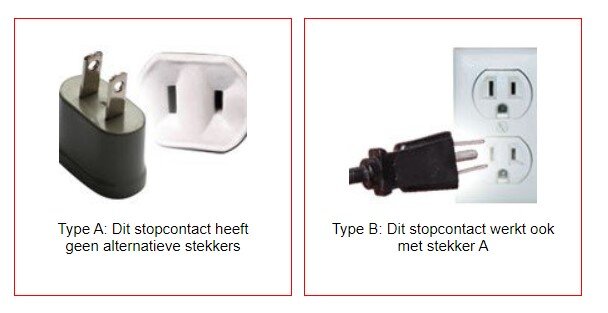This welcome pack contains essential information to help you prepare for your trip to Costa Rica.
Important: Submit Your Personal Information
It is extremely important that you complete and return the Personal Information form. This serves as confirmation of your internship or volunteer placement. Only after receiving this information can we start arranging everything for you in Costa Rica.
Contact Information
For general inquiries, you can reach us via email:
📧 info@thepowerofsports.co.uk
If you have any questions, you can contact your mentor:
📞 Phone: +44 7758 484544 (Available from 09:00 – 17:00 UK time)
💬 WhatsApp: +44 7758 484544
⚠️ Emergency Contact (24/7): +31 6 24131467
📧 Email: info@thepowerofsports.co.uk
We look forward to supporting you on this exciting journey!
The Power of Sports Team
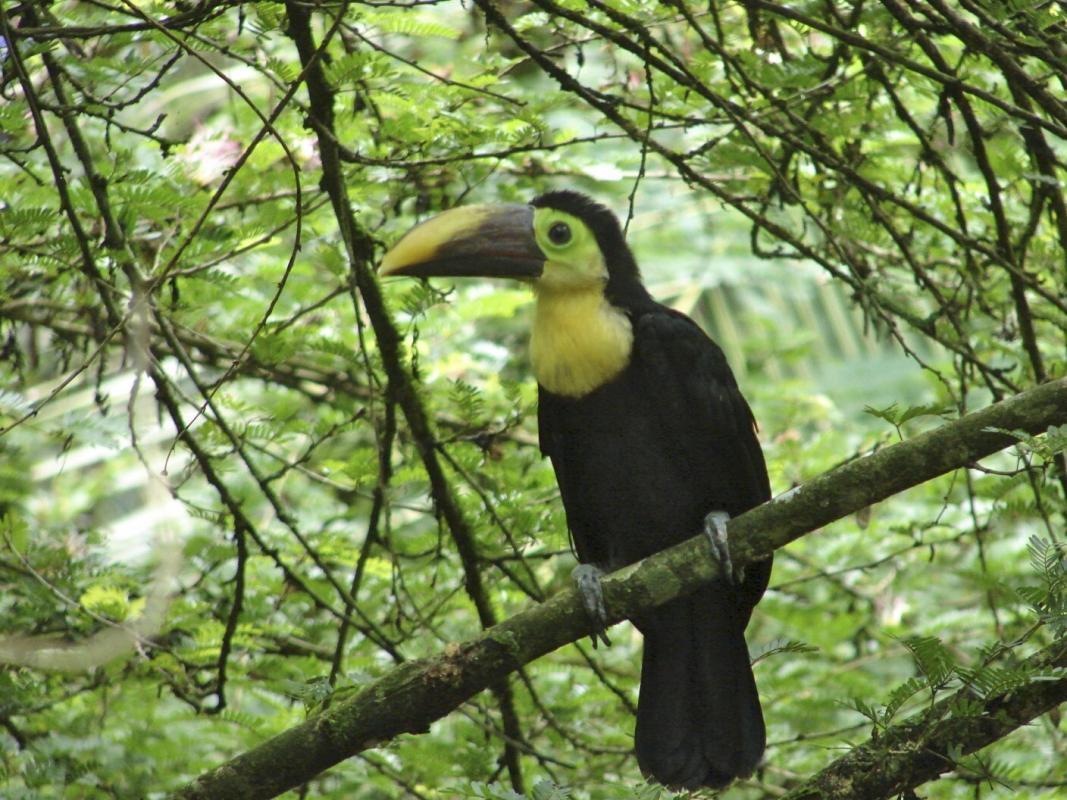
On this page, you can collect all the personal information required for your stay in Costa Rica.
Preferably, copy this form into a Word document and send it to info@thepowerofsports.co.uk The completed information will be shared with our colleagues in Costa Rica so they can be well prepared for your arrival.
Please note: we kindly ask you to return this form no later than one month before departure.
1. Personal Details
First names (as in passport):
Last name (as in passport):
Date of birth (dd-mm-yyyy):
Gender:
Email address:
Phone number:
Mobile number:
2. Address Details
Street and house number:
City:
Province/State:
Postal code:
Country:
3. Passport Information
Nationality:
Passport number:
Place of issue:
Passport expiry date (dd-mm-yyyy):
4. Emergency Contact
Name of emergency contact:
Relationship to you:
Phone number:
Mobile number:
Email address:
5. Medical Information & Dietary Requirements
Dietary preferences or food allergies (e.g. vegetarian, nut allergy):
Medical conditions (if applicable):
Use of medication (if applicable):
6. Education
Name of current or most recent educational institution (school / college / university):
7. Travel & Motivation
To tailor the programme to your needs, please fill out the following:
Favourite sport:
Previous experience in sports:
What are your goals and motivation for participating?
Is there any additional information we should be aware of?
8. Spanish
What is your level of Spanish?
(Beginner / Intermediate / Advanced)
Would you like to follow the online Spanish language course in the UK?
(Cost: 80 GBP – free if you stay 10 weeks or longer)
Yes / No
9. The Power of Sports – Clothing
Would you like to receive a The Power of Sports shirt and/or socks? Please fill in your details below. The shirt costs 40 GBP and the socks 10 GPB. 33% of the purchase price goes to our charity, so you’re not just wearing our clothing, you’re also supporting our international sports projects. Clothing will delivered to your home.
Shirt size:
Shoe size:
10. Insurance Details
Name of insurance company:
Duration of coverage (in days):
Policy number:
Insurance start date (dd-mm-yyyy):
Insurance end date (dd-mm-yyyy):
11. Flight Details
Outbound flight:
Departure date:
Departure time (24-hour format):
Airline:
Flight number:
Departure airport:
Arrival date in Costa Rica:
Arrival time (24-hour format):
Domestic airline (if applicable):
Domestic flight number:
Arrival airport in Costa Rica:
Return flight:
Return date:
Return departure time (24-hour format):
Airline:
Return flight number:
Departure airport:
Arrival date back in the Netherlands:
Arrival time (24-hour format):
Arrival airline:
Arrival flight number:
Arrival airport:
12. Terms & Conditions
I agree to the general terms and conditions of The Power of Sports:
Yes / No
Contact Information Costa Rica
50n y 50e
From Nances Health Center
Macacona
Esparza
Andrew John Hoyle (Founder, Head Coordinator)
Tel: +506 8459 69 81
info@elpoderdeldeporte.org
Andrew John Hoyle is originally British and has lived in various countries around the world for most of his life. Ultimately, he settled in Costa Rica, where he feels very much at home and is determined to support the local youth, among other things through sports. Andrew believes he has a great impact here on the health and enjoyment of children and young people, and that he can genuinely help them improve their English. He strongly believes in cultural exchange—that people from Europe can learn from them, and vice versa—and that participants should integrate with the entire community, rather than just experiencing it through tourism.
Francisco Perez (Coordinator Costa Rica)
Tel: +506 8478 1483
info@elpoderdeldeporte.org
Hello everyone, my name is Francisco, but you can call me Kito. It’s a pleasure to meet you. I will coordinate and support the various activities you will participate in while in Costa Rica. For me, it’s important to enjoy my work, so let’s try to do everything in the best possible way while having fun together.
De Kracht van Sport has supported the community here in various ways, thanks to contributions from volunteers and interns over the years. I strongly believe we can achieve great things while fully enjoying the experience. So I’m curious: Are you interested in making a difference in Costa Rica through sport, environmental impact, and education? Because I certainly am, and I’m here for you throughout the entire process!
Minne Sekuur (Coordinator)
Tel: +31 6 12773423
msekuur@dekrachtvansport.nl
My name is Minne, and I studied Sports Science at the Amsterdam University, specializing in Sport Management & Entrepreneurship. Sport plays a big role in my life, whether it’s hockey, surfing, or wingfoiling. I believe sport is more than just movement; it is a powerful tool for learning and growth.
Through The Power of Sports, I completed a five-month internship at the organization El Poder del Deporte in Esparza, Costa Rica. I helped with sports programs for children in vulnerable neighborhoods, such as setting up a football club, after-school training sessions, and collaborating with local schools. What touched me the most were the children themselves, their energy, resilience, and openness left a lasting impression on me.
Although my internship has ended, I remain involved remotely and am eager to contribute to sustainable impact. Since I know the program inside and out, I also enjoy helping to develop meaningful internship assignments.

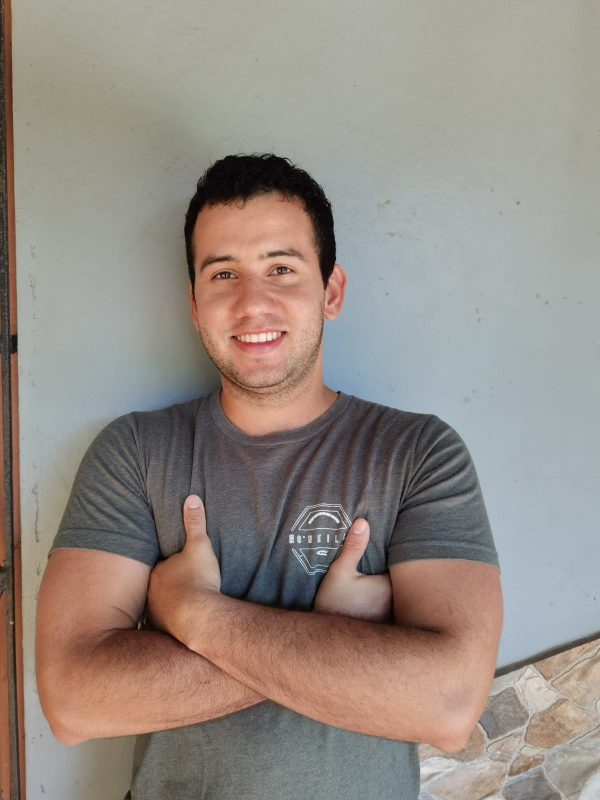
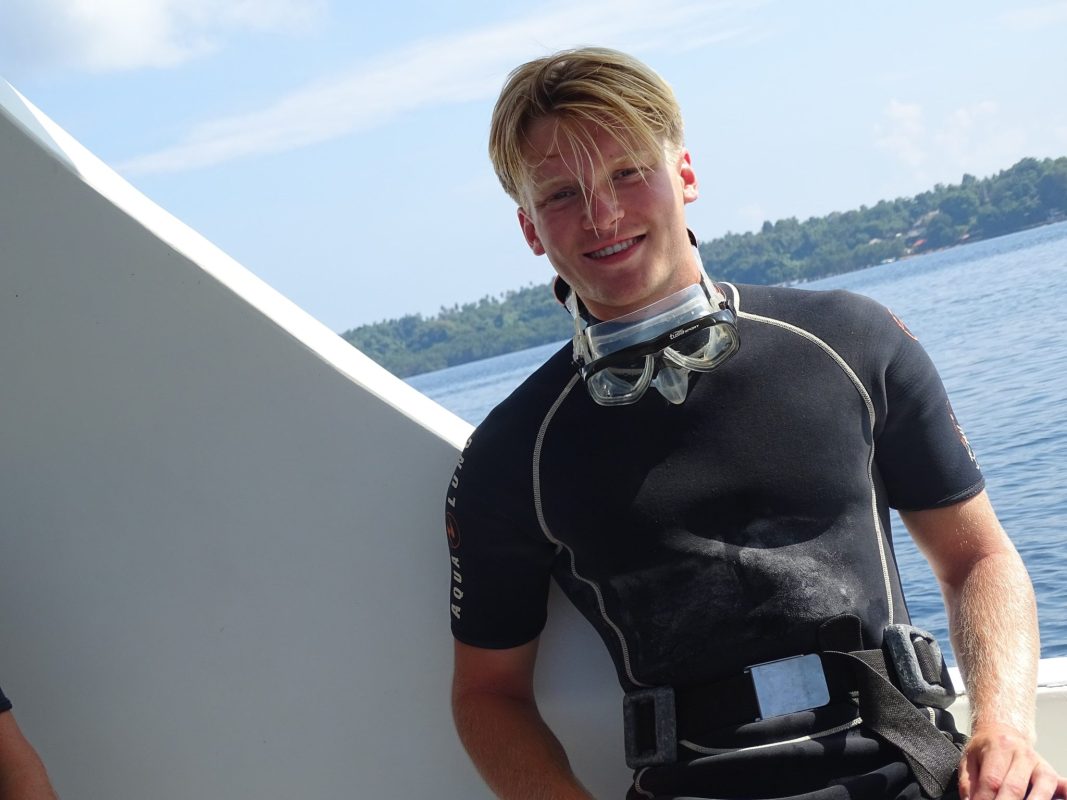
Emergency Contact
We are available 24/7.
+506 8459 69 81 (Costa Rica)
Preferred Contact
If your question is not urgent, it’s best to email the team in Costa Rica at greenjaguar.cr@gmail.com. You can always email, WhatsApp, or call your mentor in the UK.
Your Fellow Travelers
Since it’s likely you will be traveling to Costa Rica with other participants, we create group WhatsApp chats for volunteers/interns traveling during the same period. If you would like to be added, please contact your mentor.
Mentor in the UK – Mike James
Mike worked in England as a sports teacher, mainly at primary schools, and coached football in the evenings. He practices many different sports and describes himself as a “jack of all trades, master of none.” In the past, he has volunteered and coordinated projects for The Power of Sports, including in South Africa. It was an easy choice for him to broaden his horizons and continue his connection with TPOS through the new location in Mauritius. He has a great passion for sport, travel, and sports education for children.
Mike has already spent some time together with Juul, his Dutch girlfriend, as a coordinator in Mauritius and has greatly enjoyed his time there.
Spanish Lessons by Cecilia Wolman
This is Cecilia Wolman (Ceci), a Spanish teacher at the University of Buenos Aires. She will be conducting the online Spanish lessons. These lessons are very useful because the children and youth in our projects usually speak poor English.
The lessons are held every Monday at 7 p.m. (UK Time). The next lesson will take place on October 13, 2025, followed by classes on:
October 13 – October 20 – October 27 – November 3 – November 10
November 17 – November 24 – December 1 – December 8 – December 15
The lessons are specifically designed for absolute beginners. If you already have some knowledge of Spanish, you can possibly take lessons at your level in Costa Rica.
The full course is offered free of charge for participants who take part in the project for at least 10 weeks. If you participate for a shorter period, you can still join the course for a contribution of £80.
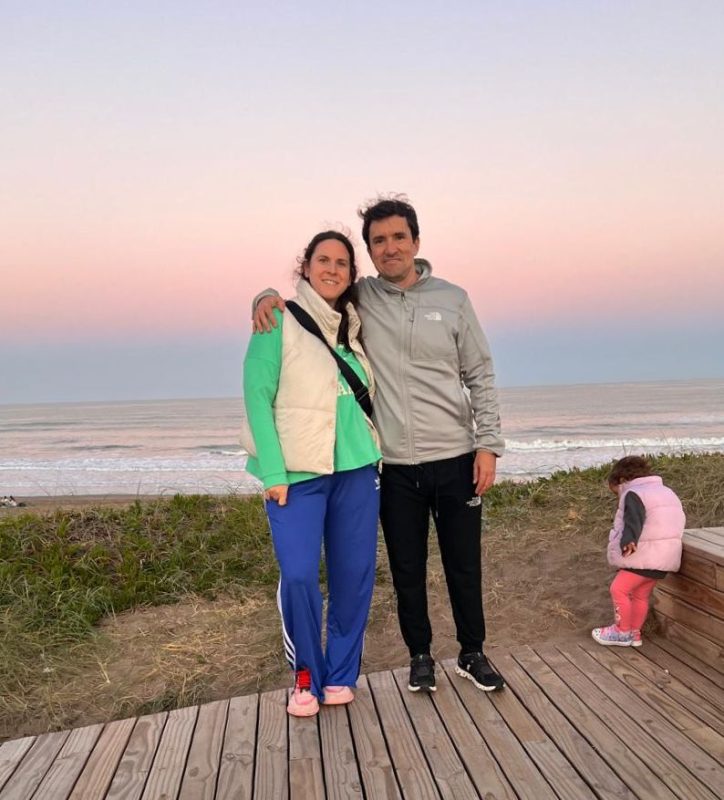
Flying via the United States
If you have a layover in the United States, it is necessary to apply for an ESTA. This can be done quickly and easily at https://esta.cbp.dhs.gov/.
The ESTA (Electronic System for Travel Authorization) is a system used by the United States to grant travelers from certain countries permission to enter the US visa-free for tourism or business purposes.
There is a fee for submitting an ESTA application, which must be paid online using a credit or debit card. It is important to use only the official ESTA website to avoid extra charges from unreliable sources.
The application usually takes a few hours to process, but to be safe, apply at least 72 hours before your trip.
Read Before Departure
-
Be prepared for culture shock. To minimize this, it’s a good idea to research your destination and its culture as much as possible. This way, you’ll be ready for the different ways people behave, communicate, greet, taboos, etc., and understand that certain behaviors can simply be different—not necessarily threatening or intimidating.
-
Learn about the weather and typical weather patterns so you know what to expect during your stay. This will also help you decide what clothes to bring.
-
Find out which diseases are common in the country and how they’re contracted so you can take measures to avoid or reduce risk.
-
Learn about creepy crawlies and other insects/animals in the country to avoid any unpleasant surprises!
Arrival Information
Upon arrival at San Jose Juan Santamaria (SJO) Airport, a member of the Costa Rica team will be waiting for you. They will take you to your accommodation. If you can’t find our team at the airport, you’ll need to call the Costa Rica team. If they don’t answer, contact your mentor in the Netherlands. Don’t panic—it will all work out!
We prefer you to arrive on a Sunday.
Program Orientation
Your first day in Costa Rica includes an orientation where you will get to know the city, other volunteers/interns, and the culture. You will also receive a local SIM card.
In-Country Team
Several people will take care of you during your stay in Costa Rica. You will have contact with many of them throughout your project, while others work “behind the scenes” to ensure you have a fun and rewarding experience.
Accommodation
The accommodation is located in the center of Esparza. You will stay in one of two eco-houses called Jaguar House and Toucan House. Each house accommodates up to 22 people. Rooms are shared with four people and feature bunk beds. If you want extra privacy or come with a partner, we also have two private rooms available.
Each house has two Western-style toilets and cold-water showers, which are refreshing in Esparza’s heat. Rooms are equipped with mosquito nets and two fans. There are laundry facilities, a kitchen, a large dining hall, a chill-out area, a shared common room used by both houses, free Wi-Fi, TV, table tennis, and a large garden with tropical plants including coconut palms, papaya, banana, and citrus trees.
If you prefer to stay with local Costa Rican families, that is also possible. Let your mentor know and they will arrange it for you.
Overview
| Standard Accommodation | Comfort Accommodation |
|---|---|
| All meals | Yes, very good homemade meals mostly in European style |
| Free drinks | No |
| People per room | 2 to 4 |
| Wi-Fi | Yes |
| Washing machine | Yes |
| Bed linen | Yes |
| Door lock | Yes |
| Shower | Yes |
| Private room | No |
| Cleaning service | Yes |
| Towels | Yes |
| Mosquito net | No (not needed) |
| Fan | Yes |
| Air conditioning | No |
Food
The Costa Rica team will provide breakfast. A typical menu includes: pancakes, fruit, bread, eggs. Sometimes rice and beans with eggs, a typical Costa Rican breakfast. Lunch is often at school or food will be provided for you to heat up. Dinner is excellent and often prepared on request. Usually cooked by Andy (a top chef). Sometimes pizza or burgers, but mostly meals based on pasta or rice with lots of vegetables and almost always some meat.
Tap Water: The tap water at our accommodation is completely clean and safe to drink.
Nearby Facilities:
Supermarket: 100 meters
ATM: 1 kilometer
Restaurants/Bars: 500 meters
Passport
Your passport is your most important document when traveling abroad. Make sure your passport is valid for at least six months after your planned return to the Netherlands. Do not place your passport in checked luggage when flying. Always keep it on your person, for example in your pocket or carry-on bag.
Visa
If your stay will exceed 180 days, you are required to have a visa. Should you plan to stay longer than 180 days in Costa Rica, please contact your mentor. They will help you obtain the visa and advise you on the application process. Obtaining a visa for Costa Rica can be time-consuming and frustrating, so start at least two months in advance. Keep in mind that countries often update their visa requirements, sometimes twice a year. For the most current visa information, check the websites of embassies in London.
DBS
To ensure that we can offer a safe and trusted environment, it is necessary that all interns and volunteers apply for a Disclosure and Barring Service (DBS) check.
You can get this via www.gov.uk, currently for 21.50 GBP.
Once in possession of your DBS, we kindly ask you to send a copy to your mentor at The Power of Sports. This allows us to ensure that all our team members meet the required standards and contribute to a safe and positive experience for the young people we work with. The DBS is of particular importance to us, given the nature of our work with vulnerable youth in disadvantaged neighbourhoods abroad.
Photocopies
It is always wise to make copies of all important documents. Keep one copy with you while abroad (separate from the originals!) and leave another copy at home with a friend or family member. We recommend photocopying the following documents in case of loss or theft:
-
Passport: passport number, issue date and place, and any visa information
-
Flight details: flight numbers, connections, and destination airports
-
Insurance policy: policy number and 24-hour medical emergency number
-
Vaccination records: proof of vaccinations
-
Bank cards: phone numbers needed to report or cancel credit and debit cards
Email Yourself!
It’s also a good idea to scan your important documents and attach them as JPEG files in an email to yourself. You can then access this email from anywhere in the world. This ensures you still have copies of your documents even if the originals and photocopies are lost or stolen.
Voluntourism
The topic of ‘voluntourism’ has a lot of talking points, and we totally understand that! You may have heard of ‘orphanage tourism’, but voluntourism is much broader than that. It is super important that you, as a volunteer or intern, are aware of this issue and what impact it can have. At our organisation, we set up our projects ourselves and think carefully about all aspects of voluntourism. To set ourselves apart from other organisations, we even co-founded ‘Volunteer Aware’, a seal of approval that shows we avoid harmful forms of voluntourism.
But not only as an organisation, even as individuals, it is essential that we carefully consider our behaviour. A well-known phenomenon within voluntourism is the so-called ‘white saviour syndrome’, where Western volunteers and trainees tend to see themselves as saviours of underprivileged communities in other countries. While our programmes definitely have a positive impact, we must remain aware of the limits of our role. As a volunteer or intern, you are fulfilling a supporting role within the project. Remember that we are guests in the community in which we work and our role should focus on supporting local initiatives and listening to the needs of the community.
To help you get a better understanding of voluntourism, we recommend watching the video below. This will help you become aware of the key principles of responsible voluntourism and how you can put it into practice during your project.
We are incredibly grateful for your commitment and dedication to participate in our programmes. Together, let’s strive for a responsible and respectful approach to volunteering or internship abroad.
Insurance
De Kracht van Sport strongly advises you to travel with adequate insurance coverage. Since these are long-term trips, the chances of encountering unexpected situations abroad are higher. Consider the following coverage:
-
Medical Emergencies: Unexpected illness or injury can occur anywhere in the world. Travel insurance with medical coverage ensures that you can cover medical expenses without major financial concerns.
-
Trip Cancellation or Interruption: Sometimes trips must be canceled or interrupted at the last minute due to unforeseen circumstances such as illness, family emergencies, natural disasters, or other unexpected events. Travel insurance can cover non-refundable costs like canceled flights and hotel bookings.
-
Lost or Stolen Luggage: Losing your luggage or becoming a victim of theft can ruin your travel experience. Travel insurance can reimburse you for lost or stolen belongings, helping to reduce your financial loss.
-
Flight Delays: If your flight is delayed causing you to miss connecting flights or planned activities, travel insurance can help cover extra expenses and inconveniences.
-
Liability: In some cases, you may be held liable for damage to property or injury to others during your trip. Travel insurance can provide coverage for such unforeseen liabilities.
-
Travel Accidents: Although nobody hopes to be involved in an accident, travel insurance offers coverage in case of permanent disability or death resulting from an accident during your trip.
-
Legal Assistance: If you encounter legal issues during your trip, such as contract disputes or other matters, travel insurance can assist you with legal advice and support.
-
Loss of Travel Documents: If you lose your passport, visa, or other important travel documents, travel insurance can help cover replacement costs and assist with obtaining new documents.
Although travel insurance comes with extra costs, it can ultimately save you a lot of money, stress, and inconvenience in case of unforeseen events during your journey.
European InsurancesVaccinations
For travel to Costa Rica, the following vaccinations are recommended:
-
DTP (Diphtheria, Tetanus, and Polio): Recommended for all travelers.
-
Hepatitis A: Also recommended for all travelers.
Depending on the length of your stay and your personal situation, additional vaccinations may be considered:
-
Hepatitis B: Recommended for stays of three months or longer, or if you have an increased risk.
-
Rabies: Consider this vaccination if you expect to have frequent contact with animals.
-
Yellow Fever: This vaccination is mandatory if you have been in a country with yellow fever within seven days before entering Costa Rica.
Additionally, it is important to protect yourself against mosquito bites, as diseases like dengue, chikungunya, and Zika occur in Costa Rica. Use insect repellents containing DEET and wear protective clothing.
For personalized advice, it is advisable to consult a travel vaccination clinic.
Health and Hygiene
We are not authorized to provide medical advice regarding your health and vaccinations, so it is absolutely essential that you seek professional medical advice from your GP or public health service (GGD) before departure.
Prevention is always better than cure. Here are some important recommendations to ensure you stay healthy during your trip abroad. Please read them carefully.
Check-ups Before Departure
-
Visit your GP or public health service to discuss which vaccinations you need.
-
It is advisable to see your doctor at least 2-3 months before departure for a general health check-up.
-
Check with your doctor (or Ministry of Health) if it is legal to take your prescribed medication into the country. If you do bring medication, it is recommended to carry a letter from your doctor explaining what the medication is for and why you need it.
-
Schedule a dental appointment. Toothache or dental problems can seriously ruin your trip, and dental care abroad can be expensive and of poor quality.
Food Poisoning
Many participants experience stomach issues within 48 hours due to exposure to new bacteria in a new environment. Resting, drinking plenty of fluids, and replenishing salts will help you recover quickly. Some travelers bring single-day multivitamins to boost their immune system.
Sun Protection
Be cautious of heat and intense sunlight. Dehydration, sunburn, and heatstroke are common among our participants but can be easily avoided by following these preventive measures:
-
Avoid direct sunlight when it is strongest (e.g., during midday).
-
Wear sunglasses.
-
Wear a hat or cap.
-
Apply a high SPF sunscreen.
-
Drink water throughout the day and always carry a full water bottle with you.
First Aid
It is advisable to bring a personal first aid kit. This is essential for any minor injuries or accidents you may have abroad. Make sure to keep it in a handy place during your stay and carry it with you daily while volunteering.
Safety and Security
Theft occurs more frequently abroad than at home. However, this can be avoided by staying alert and taking various preventive measures. Below are some general things that could get you into trouble.
Tourists are always targets for pickpockets. Make sure to research Costa Rica well before you leave so you can stay alert to different situations. Here are some tips:
-
Never travel alone or go out alone, especially at night.
-
Find out which areas are unsafe and avoid them.
-
Keep all important documents and valuables in a safe place, such as a hidden inner pocket or a money belt.
-
Carry only as much cash as you think you will need.
-
Do not wear expensive jewelry or watches.
-
Be cautious of people who seem overly friendly too quickly.
-
Keep cameras out of sight.
-
Keep your wallet in your pants pocket.
-
Ask about the safety of swimming areas and never swim alone.
Precautions to Take:
-
A money belt is useful for your valuables. Keep it under your clothes out of sight and only open it in safe, familiar places.
-
When using ATMs, make sure they are in well-lit areas. Do not count your money until you are in a secure location. Avoid withdrawing money at night and never do it alone.
Behavior and Clothing
Your behavior and clothing can attract a lot of attention. Cultures in less developed areas may react differently. They might see your clothing or attitude as offensive or disrespectful. Showing off or boasting—especially about material possessions—is often viewed negatively. Act respectfully and try to put yourself in their shoes.
Some hints:
-
Try to be modest and keep your actions low-key.
-
You are there to experience, understand, and immerse yourself in the culture—not to compare, contrast, or make judgmental remarks.
-
Try to adopt some local customs and habits. Many cultures have their own way of greeting—learn them.
-
Wear clothing that is appropriate and in no way political or offensive.
Drugs
Never buy, use, or carry drugs while abroad. Not only will your volunteering or internship be terminated immediately, but local police will not hesitate to arrest you and detain you in local prisons without trial. Conditions in foreign prisons are often very poor, and you usually do not have the same rights as at home. Penalties for possessing even a small amount of marijuana are extremely severe.
Alcohol
Almost all incidents involve overconsumption of alcohol. Participants who drink excessively are often robbed or worse in bars. Any amount of alcohol will affect your reaction time and give you a false sense of invulnerability, increasing the chance of getting into potentially dangerous situations. It is recommended not to drink alcohol during the week and to stay ‘in control’ on weekends.
Code of Conduct
We want you to have an amazing life experience abroad, but it is important to remember that you are an ambassador for our foundation. Therefore, it is essential that you conduct yourself appropriately throughout your stay abroad.
Upon arrival in Costa Rica, we ask you to sign the following agreement:
Code of Conduct
Article 1: Respect for Local Culture and Customs
1.1 You will always show respect for local attitudes, cultures, and beliefs.
1.2 You will not make derogatory, sexist, or racist remarks during your stay.
1.3 You will dress, speak, and behave in accordance with local norms.
Article 2: Antisocial Behavior
2.1 You will not engage in antisocial behavior, as defined by the Head Coordinator or local residents, during your stay.
2.2 This is especially applicable when you are under the influence of alcohol.
Article 3: Presence at Your Workplace
3.1 You are required to be punctual at your workplace every day.
3.2 If you are delayed or unable to attend, inform the Head Coordinator as soon as possible.
3.3 Alternatively, you may inform another pre-designated contact person, provided they have been approved by the Head Coordinator.
Article 4: Taking Time Off from Your Workplace
4.1 You may not undertake personal trips or spend time with friends or family during working hours without explicit permission from the Head Coordinator.
Article 5: Staying Outside the Accommodation
5.1 You may not stay overnight elsewhere without prior explicit permission from the Head Coordinator.
Article 6: Visitors in the Accommodation
6.1 You may not allow persons to enter or stay overnight in your accommodation without prior explicit permission from the Head Coordinator.
Article 7: Departure Date and Length of Stay
7.1 You must leave your accommodation on the end date of your placement unless you have explicit permission from the Head Coordinator to stay longer.
7.2 This also applies to local host families arranged by us.
7.3 You may not leave your placement prematurely without consulting the Head Coordinator.
Article 8: Hygiene and Cleanliness
8.1 You must keep all your belongings and shared spaces tidy and clean.
8.2 You must treat your accommodation with respect. Failure to comply may result in being asked to leave the placement.
Article 9: Alcohol Consumption
9.1 You agree to consume alcohol in moderation throughout your stay abroad.
9.2 The Head Coordinator will explain the rules regarding alcohol use upon arrival.
Article 10: Drug Use Prohibition
10.1 You will not buy, handle, or use illegal substances during your stay.
10.2 We maintain a zero-tolerance policy on this matter. Violation may lead to immediate termination of your placement and stay.
Article 11: Sexual Relationships
11.1 It is strongly discouraged to engage in sexual relationships during your stay.
11.2 If you do, you do so at your own risk and are aware of potential dangers, including risks of HIV/AIDS, other sexually transmitted infections, and unplanned pregnancy.
Article 12: Advice from the Head Coordinator
12.1 You must always follow the advice of the Head Coordinator.
12.2 Failure to comply may endanger your own safety or that of others and can lead to immediate termination of your placement and stay.
Article 13: Health and Well-being
13.1 You are responsible for your own health and well-being.
13.2 You agree to seek medical help immediately if you have health complaints.
13.3 You acknowledge that healthcare in the placement country may be of a lower standard than you are used to.
Article 14: Visa and Return Flight
14.1 You must ensure your return flight date is before your visa expires.
14.2 You are responsible for obtaining the necessary visa if required.
Article 15: Transportation
15.1 We strongly discourage the use of scooters or mopeds as transportation. De Kracht van Sport is not responsible for accidents if you use such transport.
Additional Program Conditions
Article 16: Alcohol Use for Interns/Volunteers
16.1 You may not consume excessive alcohol from Sunday through Friday evening unless expressly permitted by the Head Coordinator.
16.2 This rule may be relaxed on Friday evening and Saturday, with permission from the Head Coordinator.
16.3 Violations may result in immediate termination of your placement and stay.
Article 17: Minimum Working Hours
17.1 You agree to participate in your placement for at least four (4) hours per workday (Monday – Friday), unless otherwise indicated by the Head Coordinator.
17.2 You understand that you have committed to the placement and will perform your duties to the best of your ability.
Termination
If your stay is terminated due to non-compliance with the code of conduct, you will be asked to leave immediately.
Discrimination
We do not tolerate any form of discrimination. If you see, hear, or experience discrimination, inform your coordinator immediately.
Drugs
A zero-tolerance policy applies to drugs. Anyone caught in possession of or suspected of using illegal substances will be immediately removed from the accommodation.
What to Bring?
This list will help you prepare your personal clothing and essentials for your trip. The weather in Costa Rica is generally warm, but nights can be cool, especially during winter months. Costa Rica has a relaxed atmosphere, so leave your formal suits or evening gowns at home — it’s a casual environment.
Clothing
-
Hat: A wide-brimmed hat to protect your head and neck from the sun and prevent heatstroke.
-
Sweater: One warm light sweater is enough for cooler evenings.
-
Sportswear: Bring plenty of sports clothing since you’ll be active daily. We will also provide a sports shirt.
-
Shorts: Bring enough for the warm weather.
-
Socks: Plenty of socks, especially for sports activities. Don’t forget football socks if you’ll be playing with a local team.
-
Swimwear: Essential for swimming pools and the beach. Maybe you’ll want to try surfing too.
-
Pants: Cotton pants are recommended because they are breathable and useful in the evening to keep mosquitoes away.
-
T-shirts: Bring enough for daily use.
-
Underwear: Cotton underwear is more hygienic than synthetic. Pack enough for at least a week.
-
Special equipment: Whistle, hockey stick (if you are a hockey coach), sports shoes/football boots.
Note: A whistle is optional unless you specifically need it for coaching.
Shoes
-
Casual shoes: One pair is sufficient.
-
Sandals/flip-flops: Comfortable with ankle straps for good ventilation.
-
Sports shoes: Bring a pair you don’t mind getting dirty, since you’ll be outdoors a lot.
Rain gear
-
Waterproof jacket: Lightweight, waterproof, and breathable — perfect for unexpected rain showers.
Other Essentials
-
Camera/phone: To capture your adventures.
-
First Aid kit: Essential for any minor injuries while traveling.
-
Insect repellent: Choose one with a high DEET content (50%) to avoid mosquito bites.
-
Sunscreen and after-sun lotion: SPF 30+ because of strong sun exposure.
-
Sunglasses: Protect your eyes from bright sunlight.
-
Towels: At least two towels plus a beach towel.
-
Toiletry bag: With your daily essentials.
-
Water bottles: Always carry at least two liters of water. Bottled water is usually available but not guaranteed everywhere.
-
Lightweight day bag: A small, light bag for daily use.
-
Power bank: For extra battery power on long days away from home.
Phone
The international dialing code for Costa Rica is +506.
You can buy a local SIM card in Costa Rica to make calls cheaper, but fortunately, WhatsApp is widely used nowadays. There is free Wi-Fi at the accommodation, so people who bring phones or laptops can easily connect online.
Laundry
You can wash your clothes at the accommodation.
Electricity
Costa Rica uses Type A and Type B electrical outlets.
Money
The official currency of Costa Rica is the Costa Rican Colón (CRC). The approximate exchange rate is:
1 GBP = 750 CRC
Keep in mind that you will probably spend around 60 GBP to 110 GBP per week while in Costa Rica.
Food and Drink
Costa Ricans primarily eat rice and beans as a staple, usually three times a day, along with a protein and sometimes some vegetables. Soups and stews with meat or chicken are common. The food is generally not spicy, simple, and tasty. Corn tortillas are also very common.
As a volunteer/intern, the meals you receive will usually be more varied.
Smoking and Drinking
Smoking is allowed. Drinking is only allowed in moderation and should not affect your work during weekdays. Of course, we want you to enjoy your free time, but antisocial behavior will not be tolerated.
A Typical Workday
There is no typical workday in Costa Rica. Flexibility is the key characteristic of working here. Some days you may spend the entire day giving sports lessons, while on other days you might alternate with other tasks such as teaching English. We also consider your preferences and talents.
Usually, your working hours are from 9:00 AM to 3:00 PM, with a one-hour lunch break.


